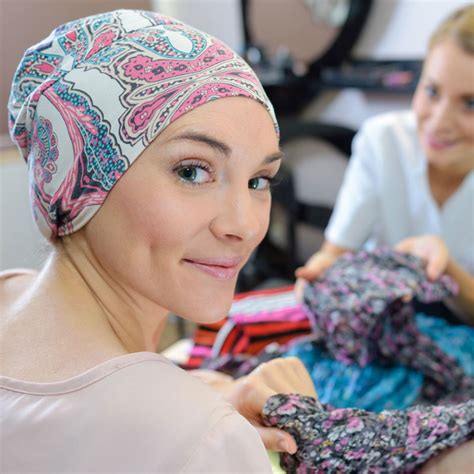Understanding Cancer-Related Hair Loss
Cancer treatments, such as chemotherapy and radiation therapy, can cause extensive hair loss. According to the American Cancer Society, approximately 65% of people undergoing chemotherapy experience hair loss, while 10-30% of those receiving radiation therapy may lose their hair.

The Emotional Impact of Hair Loss
Hair loss can be a devastating experience for cancer patients, affecting their self-image, confidence, and social interactions. Studies have shown that hair loss can lead to:
- Anxiety and depression
- Difficulty sleeping
- Social isolation
- Loss of intimacy
Types of Head Covers
To address the emotional and practical challenges of hair loss, cancer patients have a wide range of head covers available to them. These include:
| Type | Description |
|---|---|
| Wigs | Realistic prosthetic hairpieces that cover the entire head |
| Hairpieces | Partial hairpieces that attach to existing hair or to the scalp |
| Caps | Soft, comfortable head coverings that come in various styles and materials |
| Scarves | Versatile, stylish fabrics that can be tied or wrapped in different ways |
| Hats | Protective and fashionable headwear that can be worn indoors or outdoors |
Choosing the Right Head Cover
Selecting the most suitable head cover depends on individual preferences, comfort, and lifestyle. Here are some factors to consider:
- Comfort: The head cover should be breathable, lightweight, and not cause any irritation.
- Style: Choose a head cover that matches your personal style and complements your wardrobe.
- Function: Consider the activities you engage in and the level of coverage you need.
- Care: Ensure the head cover is easy to clean and maintain.
Benefits of Head Covers
Head covers offer numerous benefits for cancer patients, including:
- Emotional support: They can help restore self-confidence and a sense of normalcy.
- Protection from the elements: They protect the scalp from sun, wind, and cold.
- Privacy: They can help conceal medical treatments and reduce unwanted attention.
- Practicality: They can be used as a convenient way to manage hair loss.
Innovations in Head Covers
The head cover industry is constantly evolving to meet the needs of cancer patients. Some innovative developments include:
- Cooling caps: Wearable caps that reduce scalp temperature during chemotherapy to minimize hair loss.
- Custom-made wigs: Wigs that are designed specifically for the individual, ensuring a precise fit and realistic appearance.
- Sweat-wicking fabrics: Head covers that use advanced materials to absorb moisture and keep patients cool and comfortable.
Strategies for Coping with Hair Loss
In addition to head covers, there are other strategies that cancer patients can employ to cope with hair loss:
- Talk to your healthcare team: Discuss your concerns and explore options for managing hair loss.
- Connect with other patients: Share experiences and support with others who have gone through similar challenges.
- Practice self-care: Engage in activities that boost your mood and help you feel good about yourself.
- Consider makeup or tattoos: Explore options for enhancing your appearance and regaining confidence.
Tips and Tricks for Wearing Head Covers
Here are some tips to make wearing head covers more comfortable and enjoyable:
- Use a liner: Wear a soft liner under your head cover to reduce friction and irritation.
- Protect your scalp: Moisturize your scalp regularly to prevent dryness and itching.
- Be creative: Experiment with different styles and accessories to find what works best for you.
- Don’t be afraid to ask for help: Seek assistance from healthcare professionals, support groups, or family and friends for advice and encouragement.
Conclusion
Head covers play a crucial role in supporting the emotional and practical needs of cancer patients. By understanding the types, benefits, and innovations available, patients can make informed decisions and choose the head covers that best meet their individual needs. Remember, hair loss is a temporary consequence of cancer treatment, and there are numerous options available to help you cope with it confidently and gracefully.
